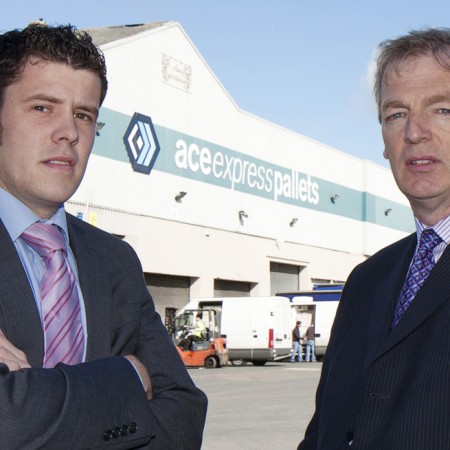One of the country’s leading freight companies, Ace Express has saved 85 per cent in reactive maintenance and support time within their IT department , thanks to a desktop virtualisation project deployed by MJ Flood Technology.
Based on VMWare and HP technology, it has significantly reduced IT administration overheads, cut the company’s carbon footprint and energy costs while delivering a secure and stable computing experience to the company’s 80 staff.With offices in Ireland, UK and the Far East, Ace Express has embraced the power of technology to deliver excellence in customer service. “Ace Express is almost a 24 x 7 operation,” explains Michael Tracey, Interim Executive, Ace Express.
“The secret to our success is based on focus, customer service and flexibility and our ability to deliver on this is heavily dependent on exploiting IT. We have advanced internal systems offering full track and trace capability, integrated satellite technology to track our vehicles and digital signature capture at point of delivery incorporating auto emailing our customer service with any delivery related issues. With over 10,000 jobs processed each month, IT is a mission-critical function for us.”
Transforming the IT Function
Ace Express has one person in charge of IT for the entire company. However, 85% of his time was taken up with routine administration and low value, reactive day-to-day tasks. “We bought into the concept of cloud computing at an early stage,” explains Tracey. “We could see that it would answer our technology challenges and transform the IT function from a cost-centre to one which would add real value to our organisation.”
“VMware View essentially decouples the operating system, applications and user data from the underlying PC hardware and centralises delivery of these from the network core,” explains Guido Marchetti, account manager with MJ Flood Technology. “This allows Ace Express to centrally automate and manage delivery of these components to their users for increased control and huge cost savings. Desktop security policy can also be set centrally through role-based administration and this completely locks down the desktop, eliminating any risk of introducing undesirable files through third party memory keys or potentially unsafe downloads,” he adds.
The IT administration role has been completely transformed as a result of this project, with 85% of IT resources now spent on strategically-important project work, which helps Ace Express to continue to use technology to drive competitive advantage and improve business performance.
The Financial Case
Tracey and his team did a full cost/benefit analysis before proceeding with the project and were pleasantly surprised with the results. “The financial case still had to stand up to scrutiny,” he comments.
“Quite apart from the projected reductions in IT administration overhead, we also calculated power savings on the thin client devices of between 75% and 80% in comparison with traditional PCs. That gives us a payback of three years on these devices alone. The reduced power consumption also supports our “green” policy and significantly reduces our carbon footprint.”
Consistent and Powerful Desktop Performance
Users at Ace Express can now enjoy a consistent and powerful desktop experience courtesy of HP’s thin client devices. The ThinPro Setup Wizard streamlines setup with a short series of easy-to-follow screens that help to choose the right configuration for the company’s environment. In addition, HP’s on-board ezUpdate automates deployment of new connections and image updates from one centralised repository to all users in one simple step.
Embracing the Power of “Virtualisation”
Tracey and his team have really embraced the power of virtualisation and are now looking to apply the concept to their own business as he explains. “We are constantly looking at new service delivery models, which will improve customer satisfaction. The concept of “virtual” warehousing is one such offering, where the customer places a PO on us and we handle everything in the workflow process right up to invoicing their client directly. This is done by creating a “virtual” PC within the customer’s own PC. It’s an innovative service that is gaining much interest and one which we hope to rollout in the near future.”
Ace Express was a voted a Deloitte Best Managed Company for two years in a row in 2009 and 2010.








